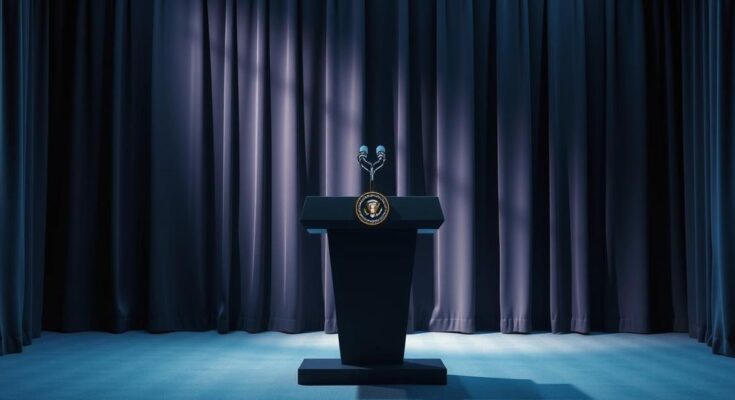U.S. President Donald Trump’s description of North Korea as a “Nuclear Power” has sparked interpretation debates, reflecting a possible shift in U.S. foreign policy. Analysts warn that this may signal a departure from denuclearization efforts, favoring personal diplomacy with Kim Jong-un. Despite this, skepticism remains regarding actual policy changes, emphasizing continued cooperation with allies like South Korea in light of evolving diplomatic dynamics.
The recent remarks made by U.S. President Donald Trump regarding North Korean leader Kim Jong-un as a “Nuclear Power” have sparked diverse interpretations. On the 13th of the month, Trump equated North Korea with countries such as India and Pakistan, recognized as “de facto nuclear powers.” This comparison has prompted analysts to speculate on Trump’s unique perspective, suggesting that his comments may reflect his personal interests rather than established diplomatic terminology.
In international discourse, countries possessing nuclear weapons are categorized into several classifications. The Nuclear Weapon State designation includes five nations: the United States, Russia, China, France, and the United Kingdom, recognized under the Nuclear Non-Proliferation Treaty (NPT). Meanwhile, terms like “Nuclear State” are commonly used to describe other nations with nuclear capabilities, including India, Pakistan, and Israel. Historically, U.S. administrations have avoided labeling North Korea in such a manner due to its implications of legitimizing the country’s nuclear arsenal.
The importance of Trump’s reference to North Korea potentially unsettles existing diplomatic norms. If his intent was to acknowledge North Korea’s nuclear status rather than just to emphasize its capabilities, this could signify a significant policy shift. Such recognition might suggest a departure from the goal of denuclearization, leading to more engagement on limited issues like North Korea’s intercontinental ballistic missiles (ICBMs) while bypassing broader disarmament discussions.
Kim Jae-cheon, a professor at Sogang University, highlighted that Trump’s casual use of the term “Nuclear Power” deviates from established diplomatic guidelines. Furthermore, it raises concerns that Trump may choose to prioritize personal diplomacy with Kim rather than pursuing stringent denuclearization strategies. Observers speculate that Trump might engage in high-profile summits over more extensive negotiations that aim for substantial outcomes, such as a Nobel Peace Prize.
Despite the unconventional nature of Trump’s comments, some analysts argue that it is premature to interpret these statements as a fundamental shift in American policy toward North Korea. While there are indications of a looser dialogue framework, it remains unlikely that the U.S. will formally recognize North Korea as a nuclear power comparable to India or Pakistan if talks are resumed.
A former senior official from the Ministry of Foreign Affairs noted, “President Trump’s labeling of North Korea as a ‘Nuclear Power’ suggests an acknowledgement of the reality of its nuclear capabilities.” He further assessed that future U.S. policy will necessitate close coordination with South Korea, alleviating concerns of South Korea being sidelined in diplomatic engagements.
The newfound controversy surrounding North Korea’s designation began in mid-January during Defense Secretary Pete Hegseth’s confirmation hearing. In the ensuing days, Trump reiterated his amicable relationship with Kim, stating, “I think he will welcome me back,” reflecting a willingness to reconnect.
The implications of Trump’s statements reverberated during the U.S.-Japan summit held early last month, where leaders underscored their commitment to North Korea’s complete denuclearization. Additionally, at a recent trilateral meeting between the foreign ministers of South Korea, the U.S., and Japan, the joint statement reiterated their firm commitment to achieving denuclearization, maintaining a united front in the face of evolving diplomatic circumstances.
In conclusion, President Trump’s recent comments regarding North Korea’s nuclear status have generated significant debate regarding the implications for U.S. foreign policy. While his informal labeling of North Korea as a “Nuclear Power” could indicate a shift towards recognizing its nuclear capabilities, many analysts remain cautious about interpreting this as a definitive policy change. Continued diplomatic engagement with allies, particularly South Korea, remains critical as the situation evolves and discussions progress.
Original Source: www.mk.co.kr




